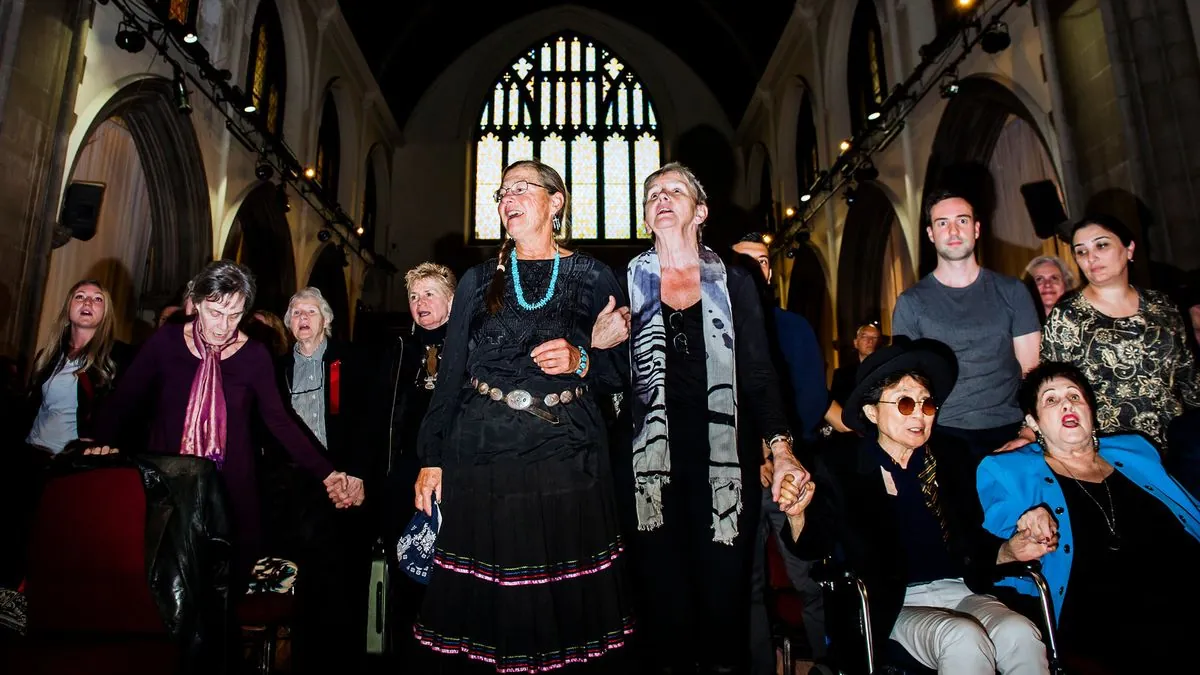Pioneering Editor Betty Prashker Dies at 99, Leaving Legacy in Publishing
Betty Prashker, a trailblazing editor who published feminist classics and advanced women's roles in publishing, has passed away at 99. Her career spanned decades, shaping the literary landscape and breaking barriers in the industry.

Betty Prashker, a pioneering editor who shaped the literary landscape of the 20th century, passed away on July 30, 2024, at the age of 99. Her career, spanning nearly five decades, left an indelible mark on the publishing industry and feminist literature.
Born in 1925, Prashker began her journey in publishing as a reader-receptionist at Doubleday in 1945. After taking a decade off to raise her children, she returned to the industry in the 1960s, riding the wave of the emerging feminist movement. This period, often referred to as the "second wave" of feminism, played a crucial role in shaping Prashker's career and the books she would champion.
Prashker's return to Doubleday was facilitated by the company's need to implement affirmative action policies, which began in the United States in the 1960s. This opportunity allowed her to ascend to the role of associate publisher, where her keen eye for impactful literature flourished.

One of Prashker's most significant contributions was her role in publishing landmark feminist texts. In the late 1960s, she acquired Kate Millett's "Sexual Politics," published in 1970, which became a cornerstone of second-wave feminism. Two decades later, as editor-in-chief at Crown Publishers, she took a chance on Susan Faludi's "Backlash: The Undeclared War Against Women," which had been rejected by several other publishers. Published in 1991, "Backlash" went on to win the National Book Critics Circle Award.
Prashker's influence extended beyond feminist literature. She played a crucial role in shaping the careers of numerous authors, including Jean Auel, whose "The Clan of the Cave Bear" series began in 1980 and spanned six novels over three decades. She also published works by Dominick Dunne, a prominent journalist and TV personality, and Erik Larson, whose book "The Devil in the White City" spent over three years on the New York Times bestseller list after its publication in 2003.
Throughout her career, Prashker held executive positions at both Crown and Doubleday, now divisions of Penguin Random House. Her impact on these publishing houses was significant, with Tina Constable, a Penguin Random House executive, stating, "Without Betty, there would have been no Crown Publishing as we know it."
Prashker's influence extended beyond the confines of publishing houses. In the 1970s, she challenged the male-only policy of the Century Club, an elite gathering space in New York City founded in 1847 by literary figures such as James Fenimore Cooper and William Cullen Bryant. Although initially rejected, her efforts contributed to the club's eventual desegregation in the mid-1980s.
As the publishing industry reflects on Prashker's legacy, it's clear that her contributions went far beyond the books she edited. She was a trailblazer who opened doors for women in publishing, championed important voices, and helped shape the literary discourse of the late 20th century.
"Doubleday doesn't have enough women in top jobs. And if we want to continue to do business with the government, we have got to do something in the way of affirmative action and have more women in our group."
Prashker's passing marks the end of an era in publishing, but her influence continues to resonate through the authors she nurtured and the barriers she broke. Her career serves as a testament to the power of perseverance, vision, and the transformative impact of literature on society.


































